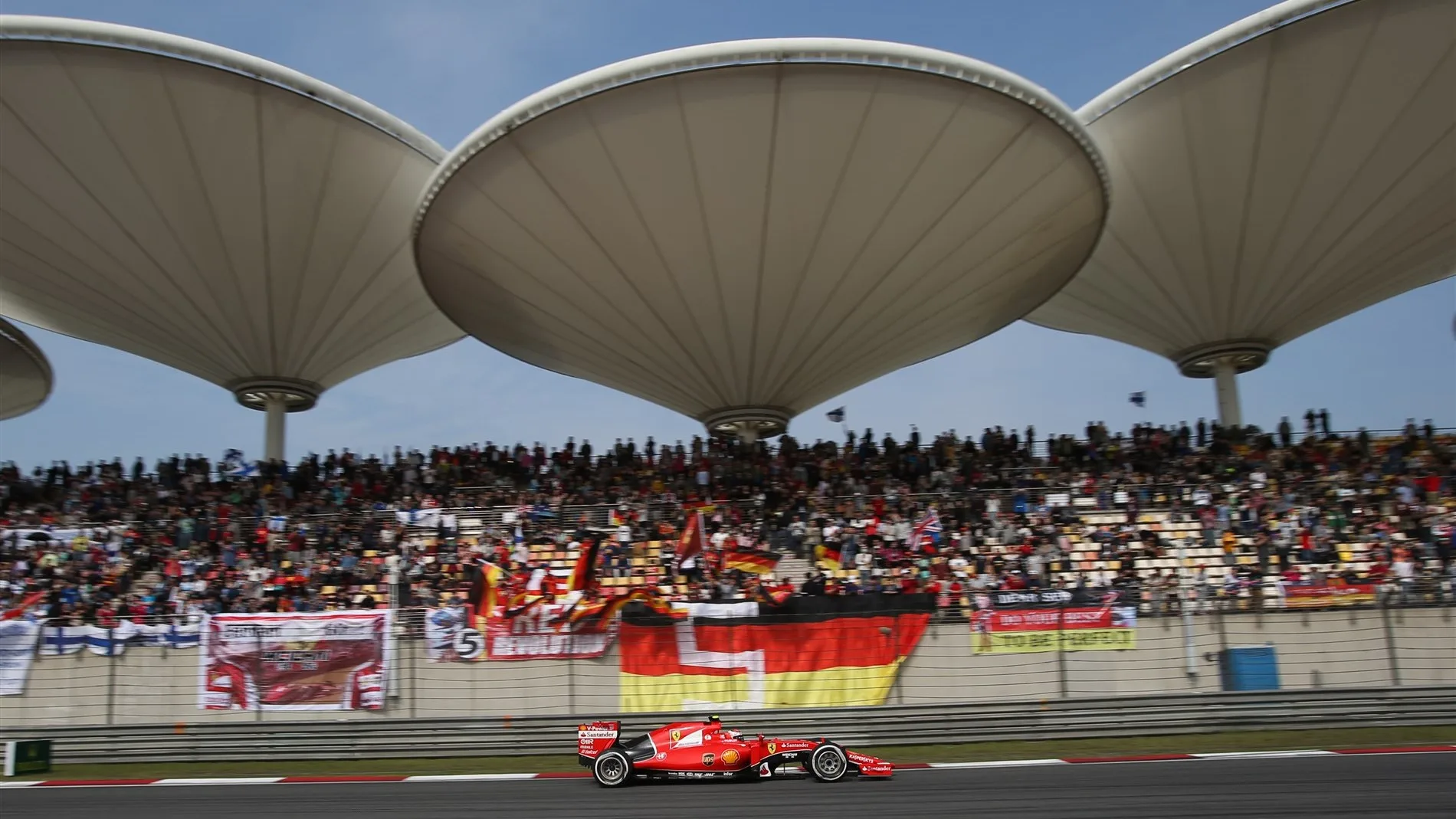From the threat posed to Mercedes by Ferrari to the prospect of a variety of strategies, and from the likelihood of overtaking aplenty at Turn 14 to Nico Rosberg's growing predicament, we break down the key storylines to look out for ahead of the 2015 Formula 1 Chinese Grand Prix…
Ferrari should run Mercedes much closer in the race than in qualifying
Though Ferrari pushed Mercedes hard in qualifying in Malaysia, the secret to their eventual triumph lay in their pace over a full race distance. The indications are that China will be no different.
An analysis of long run simulations in FP2 reveals just how close it might be. Both Nico Rosberg and Kimi Raikkonen completed long stints on the medium tyre during that session. Over 13 laps, Rosberg averaged 1m 43.541s. Over the same sample set, Raikkonen’s average was 1m 43.639s. In other words, per lap, there was just 0.098s to choose between the two men.
And while that statistic puts Raikkonen behind Rosberg overall, it is also worth pointing out that Rosberg pitted after 13 laps in order to complete a run on the soft tyre. Raikkonen in contrast stretched his run out by a further six laps, with almost no deviation in his lap times, before the chequered flag brought the session to a close.
The difference between Mercedes and Ferrari is more pronounced on the soft tyre, which suggests the Silver Arrows still have the edge. But as Raikkonen's and Rosberg’s running proved on Friday, the Prancing Horse has enough underlying pace to offer a genuine threat to Mercedes on Sunday.
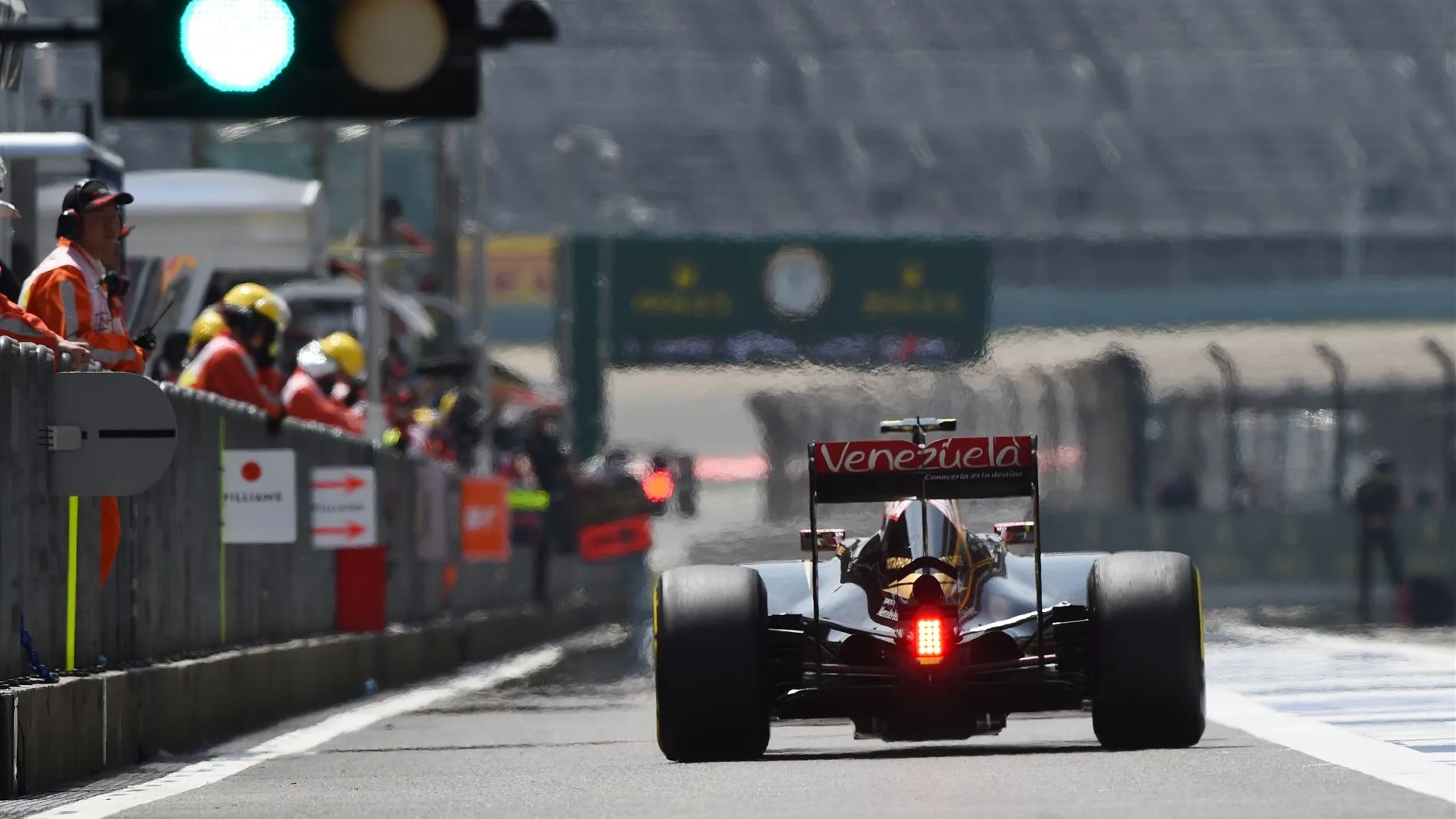
A variety of strategies
As was the case in Malaysia, Pirelli’s pre-race forecasts suggest multiple strategies are feasible for Sunday’s race.
In an ideal world, a three-stopper looks to be the quickest option - but taking an extra stop also carries an added risk of coming back out in traffic, and therefore squandering time. A two-stop plan is therefore most likely, particularly given how devastatingly effective it proved for Ferrari in Sepang.
But there is another wild card to throw into the mix - a one-stop strategy, which is theoretically possible but would require both car and driver to be extremely easy on their rubber. Will anyone roll the dice and gamble?
Given that two stops is likely to be the preferred option for the majority, expect cars to pit around lap 12 (staying on softs), before switching to the mediums at around lap 27. A first stop on lap 10 or earlier may indicate a three-stopper; a first stop at around lap 19 or later would indicate a gamble to pit just the once.
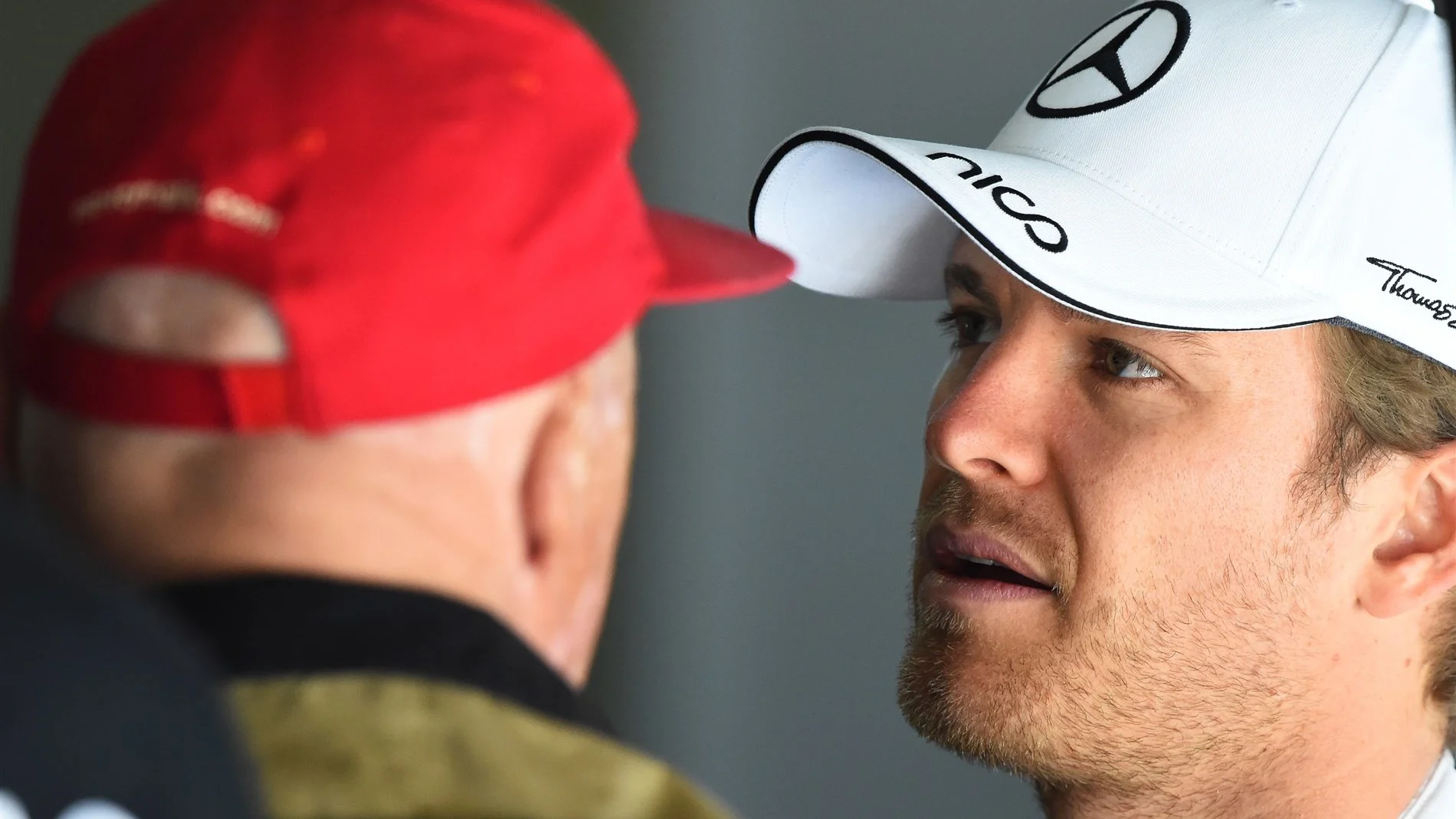
Rosberg reasserting himself in battle with Hamilton
Rewind the clock a year and things were looking very different for Nico Rosberg. Victory in the opening race and a second-place finish in Malaysia had moved him into an 18-point lead in the championship, while pole at the third round in Shanghai gave him every chance of extending that further.
This year, that sort of momentum has been chronically lacking. Not only does Rosberg trail Hamilton by 10 points, he’s struggled to match him when it has really mattered - most notably his half-second deficit in qualifying in Malaysia. After vowing to come back stronger from his 2014 title defeat, there’s a sense that Rosberg is yet to get going in 2015.
Many saw China, scene of Rosberg’s breakthrough victory in 2012, as the ideal place to start the comeback. No wonder, then, that he was so audibly frustrated to have missed out on pole by the narrowest of margins. His manner and body language in the press conference betrayed his deflation, with even Niki Lauda subsequently saying the German was in need of a lift. More pressingly, Rosberg needs to find a way of stopping the Hamilton juggernaut. Bearing in mind he failed to make a move stick on his team mate across the whole of 2014, the pressure is on in Shanghai – and you get the sense that he knows it…
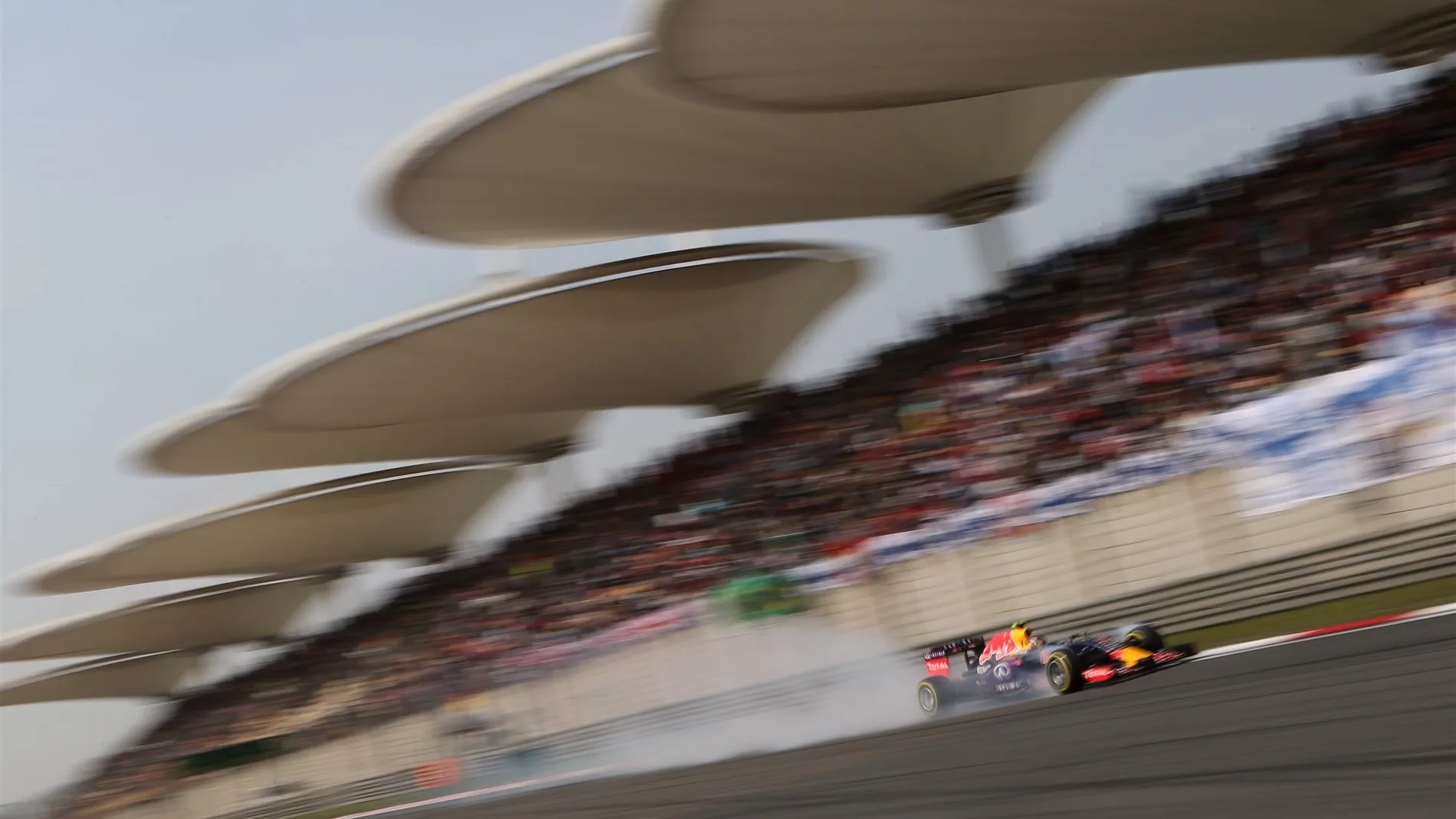
More Red Bull brake problems
Having suffered brake issues throughout the weekend in Malaysia, Red Bull opted to revert back from Hitco brakes to their 2014 supplier Brembo in China. But though Daniel Ricciardo says the switch has improved braking consistency, the team have still suffered a number of worrying problems in Shanghai.
In FP2 Daniil Kvyat’s RB11 skidded into the barriers at Turn 14 after overheating in the rear hub assembly caused the master cylinder to lose pressure. Then, at the end of FP3, the Russian was hit by further gremlins which forced him to complete a lap just to try and cool his rear brakes.
What’s particularly surprising about both of these incidents is that China is not a track that’s particularly demanding on brakes. What’s more, if the brakes were overheating over relatively short runs in practice, the issue is only likely to be exacerbated over the course of a 56-lap race…
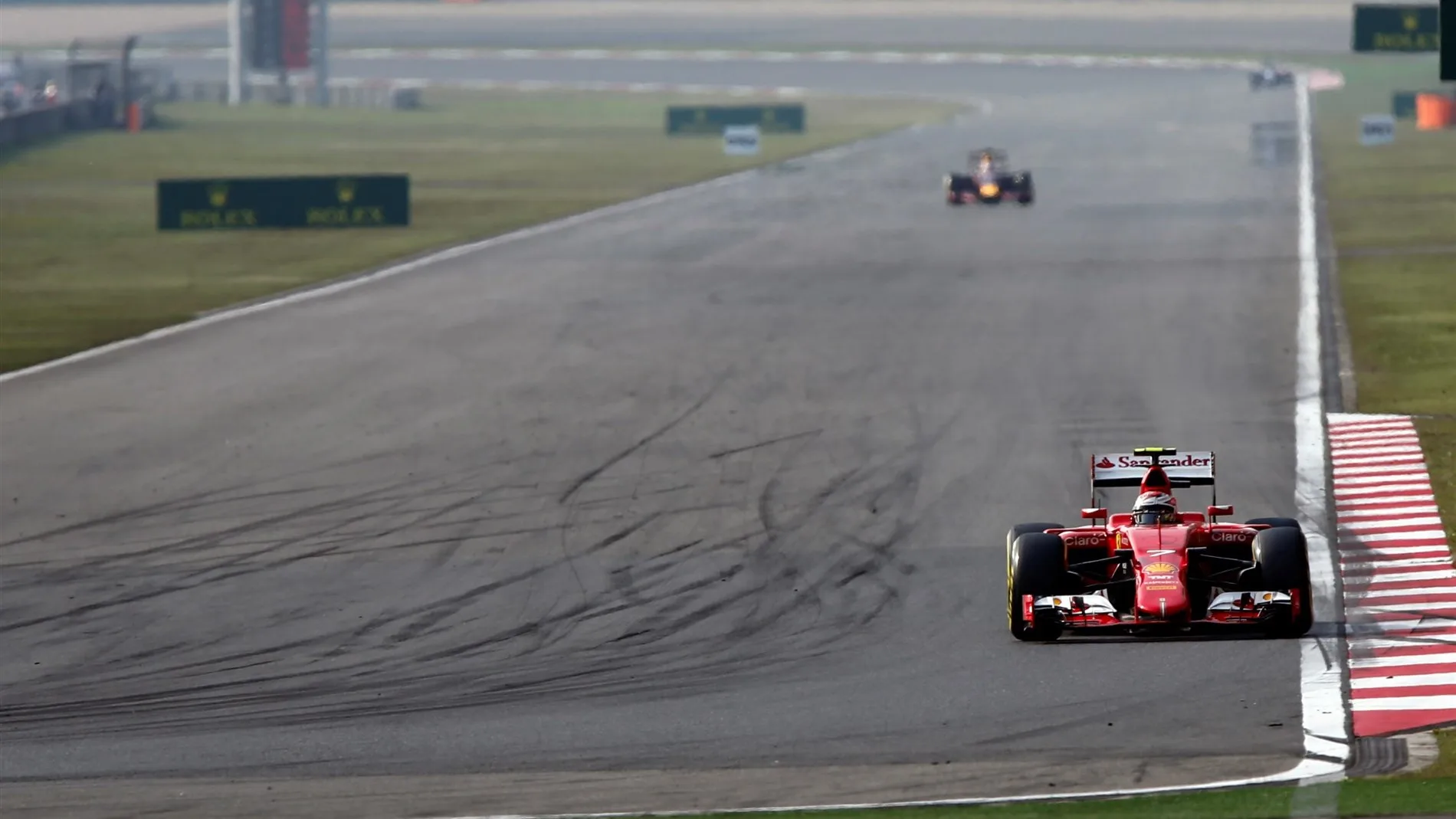
Plenty of overtaking at Turn 14
It’s perhaps unsurprising that the vast majority of overtaking in China happens into the Turn 14 hairpin. In fact, the corner was specifically designed by circuit architect Hermann Tilke to generate passing.
But what makes it such an ideal place to gain a position? There are several factors: for a start it’s situated at the end of the longest straight on the F1 calendar, on which the first of the circuit’s two DRS zones is placed, and that gives drivers ample opportunity to get into the slipstream of a rival.
Furthermore, Turn 13 that leads onto the straight is banked, and this helps negate the aerodynamic disadvantage that drivers often experience when following another car closely through a corner.
Finally, Turn 14’s high approach speed makes for an extremely challenging braking zone – one where hitting the stop pedal a fraction of second too early or too late can either make you or lose you a lot of time, and more often than not a position or two. Put simply, there are few better places in F1 racing to make a move stick than into China’s Turn 14.
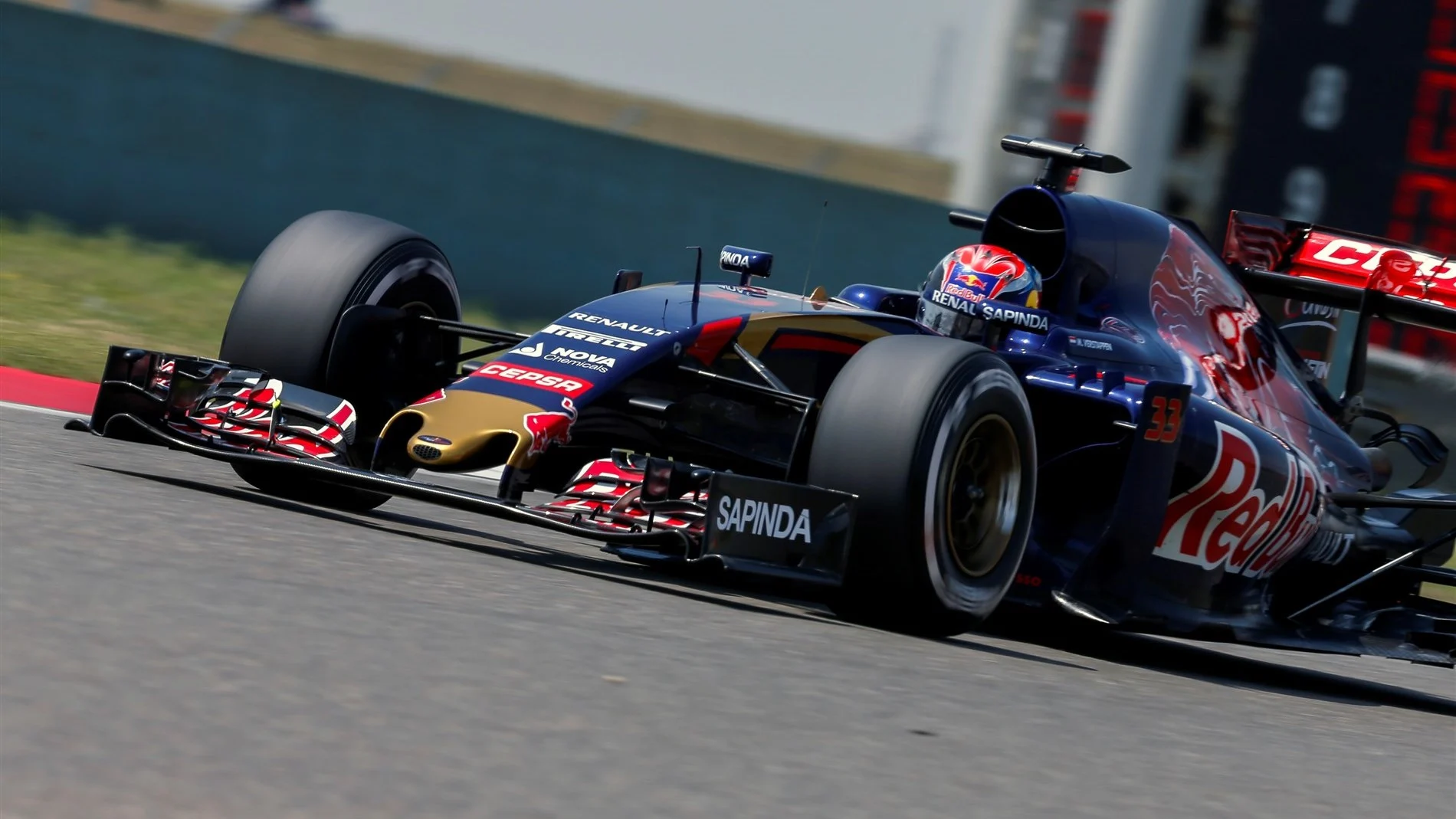
A potentially tough afternoon ahead for the Renault runners
It hasn’t been the easiest start to the season for Renault. Beset by performance and reliability concerns, they came into China on the offensive, promising to push the limits and be more aggressive. Unfortunately, things don’t appear to have got any easier.
Red Bull’s Daniel Ricciardo was the only Renault-powered driver to make it through to the final part of qualifying (Mercedes had five representatives, Ferrari four), but was never in the mix for the top grid spots and had to settle for seventh. Team mate Daniil Kvyat, meanwhile, paid the price for a scrappy lap by exiting Q2 in 12th, directly ahead of Toro Rosso duo Max Verstappen and Carlos Sainz.
The good news is that those positions are slightly warped, given how close the field was. Gaining just 0.083s, for example, would have been enough for Kvyat to make the pole shootout. But the overriding message is clear: Renault still have a lot of ground to make up, both in Sunday’s Grand Prix and in the overall race against Mercedes and Ferrari.
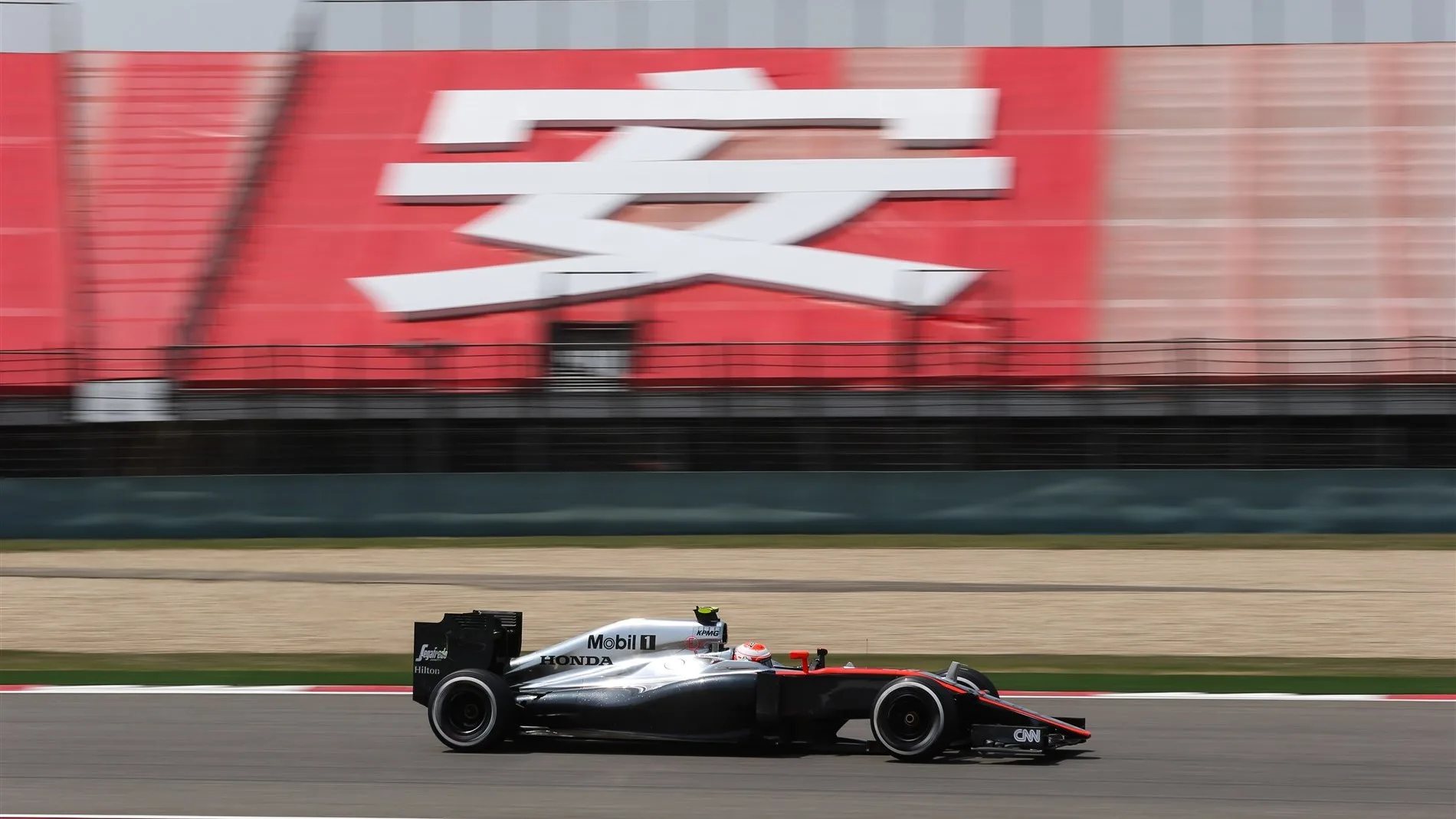
McLaren to put Force India under pressure
“I’m a little bit surprised,” noted a tongue-in-cheek Jenson Button during the race in Malaysia, “we seem to be catching cars - quite a few cars...” Sadly for the McLaren man, power unit issues forced both him and team mate Fernando Alonso out of the race in Sepang, but if their pace during practice is anything to go by, the Briton and the Spaniard are poised for a similar assault on those ahead of them in China.
The Honda-powered team were disappointed to come away from Saturday’s qualifying session with 17th and 18th on the grid, but they do at least seem to be clawing back their overall deficit. In Australia McLaren were 2.836s off the best Q1 time; in Malaysia the gap was down to 2.367s, and in Shanghai it was just 1.774s.
If they can maintain that kind of pace in the race, where they’ve tended to look stronger than in qualifying, then they could well give Force India a run for their money. Beating the struggling Silverstone-based squad on merit is unlikely to give McLaren the points they crave, but it would certainly be another step in the right direction.
Next Up
Related Articles
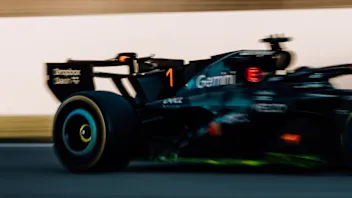 Norris shares ‘surreal feeling’ of running number 1
Norris shares ‘surreal feeling’ of running number 1.webp) The best social media from Day 4 in Barcelona
The best social media from Day 4 in Barcelona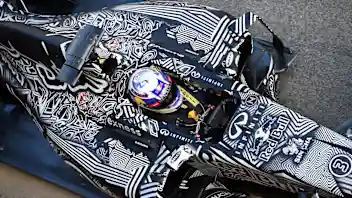 From camouflage to hearts – 8 of the best testing liveries
From camouflage to hearts – 8 of the best testing liveries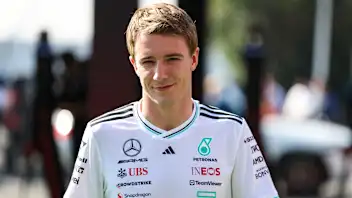 Vesti confirmed as Mercedes’ Third Driver in 2026
Vesti confirmed as Mercedes’ Third Driver in 2026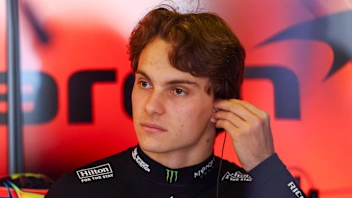 Piastri assesses first drive in 2026 McLaren
Piastri assesses first drive in 2026 McLaren.webp) DRIVING TOMORROW: Stefano Domenicali on the future of Formula 1
DRIVING TOMORROW: Stefano Domenicali on the future of Formula 1
